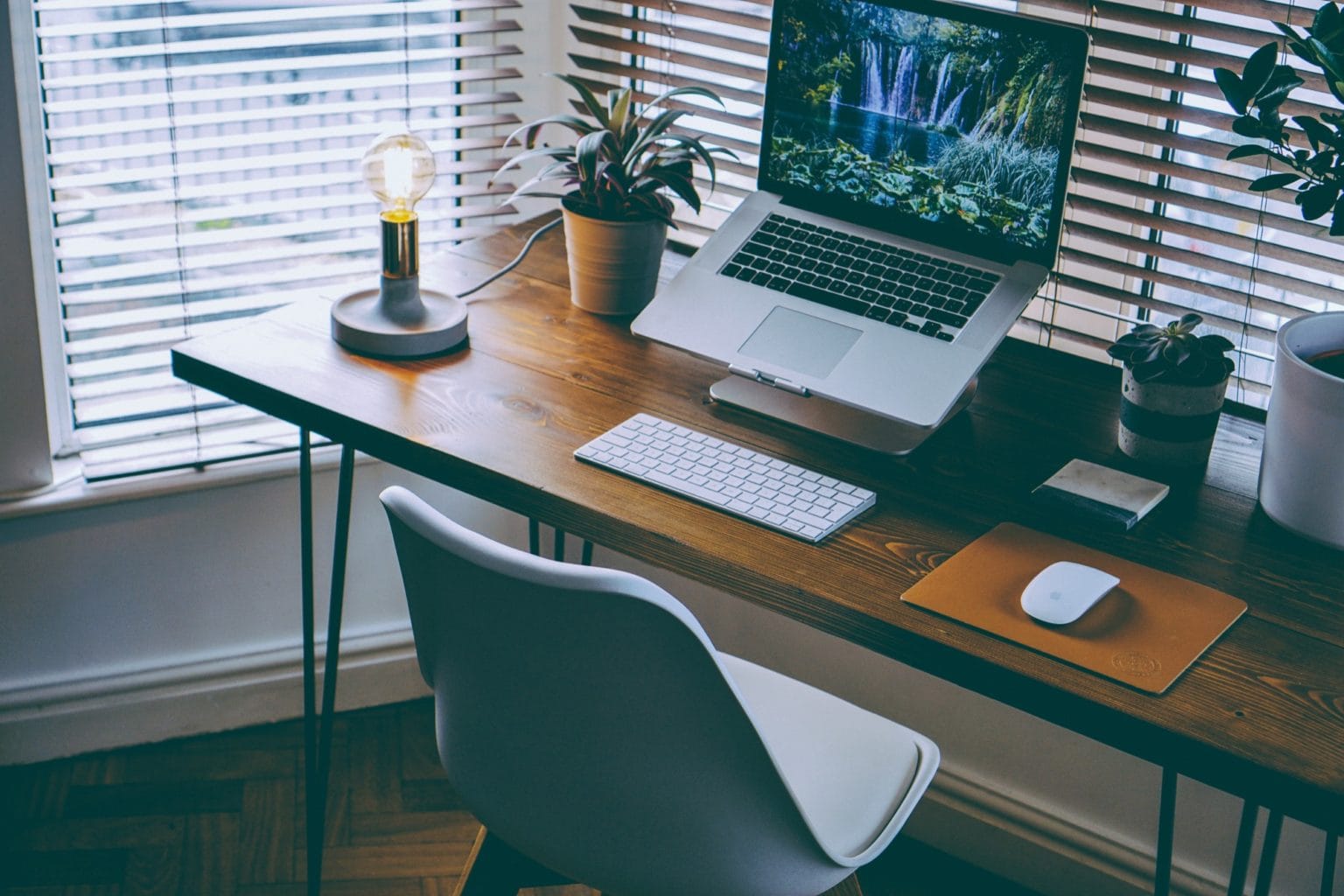Thanks to the rapidly spreading COVID-19 virus, lots of people are being told to work from home. And that’s good, work-wise, because working from home can be relaxing, highly productive and, of course, very convenient. But depending on your family situation, your home layout and your guilty stress from feeling like you’re not doing enough, it also can be a nightmare.
Most of the Cult of Mac team works from home, so I asked for their top telecommuting tips. Here they are.
Avoid distractions when you work from home
Most people think that, when they work from home, they will have trouble avoiding domestic distractions. That’s almost never the case. The problem is the opposite — knowing when to stop. That said, there are distractions. Instead of avoiding them, you should manage them. Keep a pen and paper next to your computer, and whenever you think, “Oh, I could just sweep the floor now or marinate that tofu for dinner,” write it down instead. Ditto for that “important” Google search. This is good general advice for working anywhere, not just at home. Avoid distracting yourself.
On the other hand, you are at home, so you can do all kinds of things that were impossible in the office. You can marinate that tofu. You can put in a load of clothes to wash. I bake bread, because baking bread is pretty much a lot of waiting, with a few bursts of action. The key is to do these things during your breaks. Take a break, stretch and put a load in the washing machine. Speaking of breaks…
Take breaks and move
You should take a break every half hour, and that break should involve getting up and moving around. On the Mac, I use an app called Awareness to sound an alarm every 30 minutes. (We have a whole how-to on taking breaks.)
Another great time-management app is Focus, which syncs across Apple Watch, Mac and iOS.
When you take a break, you should move. Stretching is good. Look into stretches during one of your breaks. I take five minutes every half-hour to stretch my arms, back and legs. After a while, this becomes a habit. And don’t skip those breaks. It’s tempting to tell yourself that it’s more important to type those words right now, instead of five minutes later, but it rarely is.
Stretching like this almost completely cured RSI problems I suffered in my wrists and forearms. Don’t skip this part.
Make space to work from home
This is really several tips. If you’re lucky, you’ll have an empty home during the day. More likely, especially as schools close and COVID-19 lockdowns are imposed, you will be sharing your space with family members or roommates.
Physical space
So, it’s important to make space to work. Stay away from busy areas like the kitchen, where you will face constantly disturbances. If you cannot lock yourself away in a room, at least make sure other people in the house know that they must not disturb you. That’s going to be hard with small kids, but you’ll manage it. (You can see them during your breaks, remember? You can’t do that from the office.)

Photo:
Guilherme Stecanella/Unsplash
Mental space
In addition to physical space, you need mental space. Start work at the same time every day. In place of your normal commute, you might come up with a small routine. I get up at the same time every day, make a thermos of fancy coffee, and take it back to bed. I drink a cup, read the Apple-related news, catch up on the Slack messages I missed overnight, and check my jobs for the day. Then, I get up, get dressed (do not work in your pajamas), and move to the desk for my second cup of coffee. I also listen to the exact same music every day (it’s an ambient album from Brian Eno) to get myself into the work headspace.
A final note on space. If this is a permanent setup, it’s good to have a space that you can close the door on when you’re done for the day. I don’t do that, but I do set limits in other ways. Almost all Cult of Mac communication is done in Slack, so I set Slack to turn off notifications after 8 p.m. Why so late? We work in different time zones, so even though I knock off for the day before 8 p.m., I keep my notifications on so I can talk to my editor.
Know what you need to do
When you work in an office, the very fact that you’re there counts for something. That’s why macho types stay way beyond the official end of the work day. At home, you are not in the office. The boss can’t see that you are there, supposedly working. This can lead to guilt. You think that your boss thinks that you’re not working. It’s tempting to prove that you’re working by making noise — being present in Slack, or copying in your boss on pointless emails.
Also, you don’t necessarily need to work set hours. Some jobs require that you be present or on call at certain times of the day. If yours doesn’t, try to forget the hours, and plan around tasks instead. Make a list of what you need to do that day, then do it, then stop working.
Structure your day so you can switch off
This is not only a good way to structure your day, it’s also a great way to help switch off. If you fear that your boss thinks you’re not working, then making your work task-based instead of hours-based can really help. When you’re done, you’re done. Just be careful not to let these tasks take too long. If your office hours are usually 9 to 5, then knock off at 5 p.m. Any unfinished business can be done tomorrow.
It also can help to review your to-do list at the end of the day, so you can get it ready for the morning. That way, your head is clear of unfinished business, and you can switch off.
Speaking of switching off, maybe you need a routine to replace the evening commute, too. Try a half-hour of meditation. You have no excuse about lack of time anymore. Alternatively, you could cook. Or take a long walk. In fact, take a long walk earlier in the day, too — perhaps after lunch. It really does help you think better, and you’ll finish work faster. Also, if you don’t get out and walk, you’ll end up spending 24 hours a day in the same space, which might drive you nuts.
The social aspect
This can be a problem with waking from home. There’s nobody around to chat with. At Cult of Mac, we’re all remote workers, so we use Slack as a virtual water cooler. It can get distracting at times, but it provides important social interaction. In better times, you might like to spend time in a co-working space or a coffee shop. But if you’re at home due to a coronavirus lockdown, that would defeat the point of telecommuting.
This part is tricky, but again, take advantage of the fact that you don’t have to commute. You know how you always cancel plans to see people in the evening, because you arrive back from the office exhausted? Well, without the commute, and with having been cooped up at home all day, you may find yourself desperate to get out and socialize.
Enjoy it
Working from home is great for a variety of reasons. You save a ton of time by not commuting, and you can complete your housework and chores instead of checking Facebook or chatting up David, the hottie from accounts. But working from home also can leave you lonely and stressed out. The key is to separate your work life from your home life. The No. 1 danger with working from home is not knowing how or when to switch off. Master that, and you’re gold.
Then, enjoy it. Savor the fresh, home-baked bread. Enjoy getting to know your UPS, FedEx and other delivery people, who will leave all your neighbors’ parcels with you. Enjoy getting to know these neighbors when they come to pick up their packages after a long, hard commute. And enjoy the siestas that you’re too timid to take in the office, but which really do improve your entire afternoon’s alertness.
Have fun! And remember, if you start feeling guilty that your boss thinks you’re goofing off, remember that she’s probably in her pajamas, feeling just as guilty as you.


